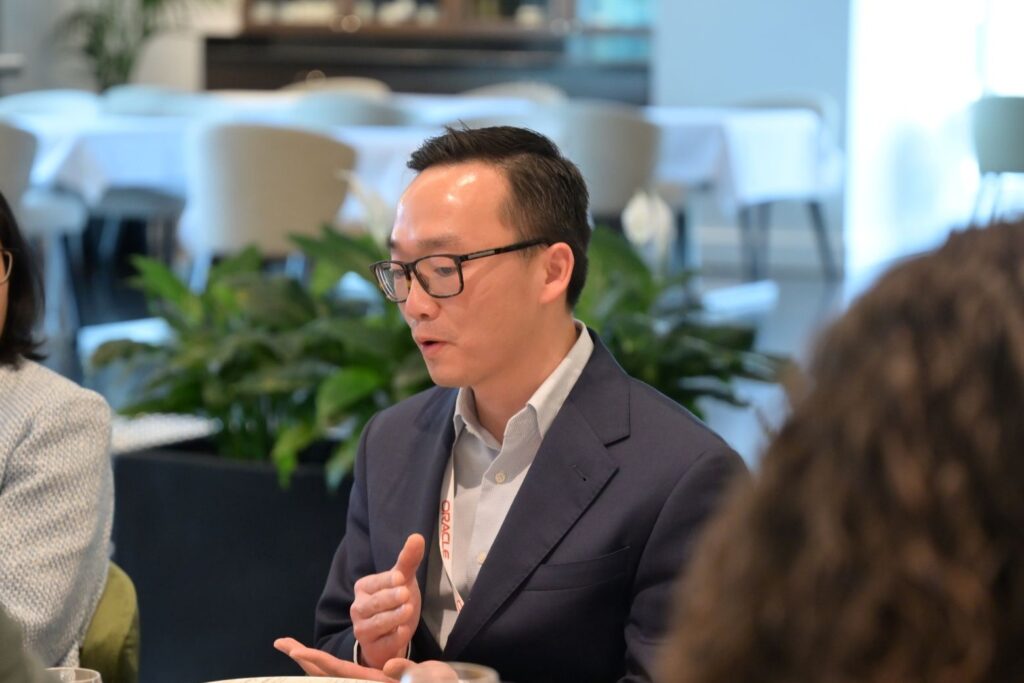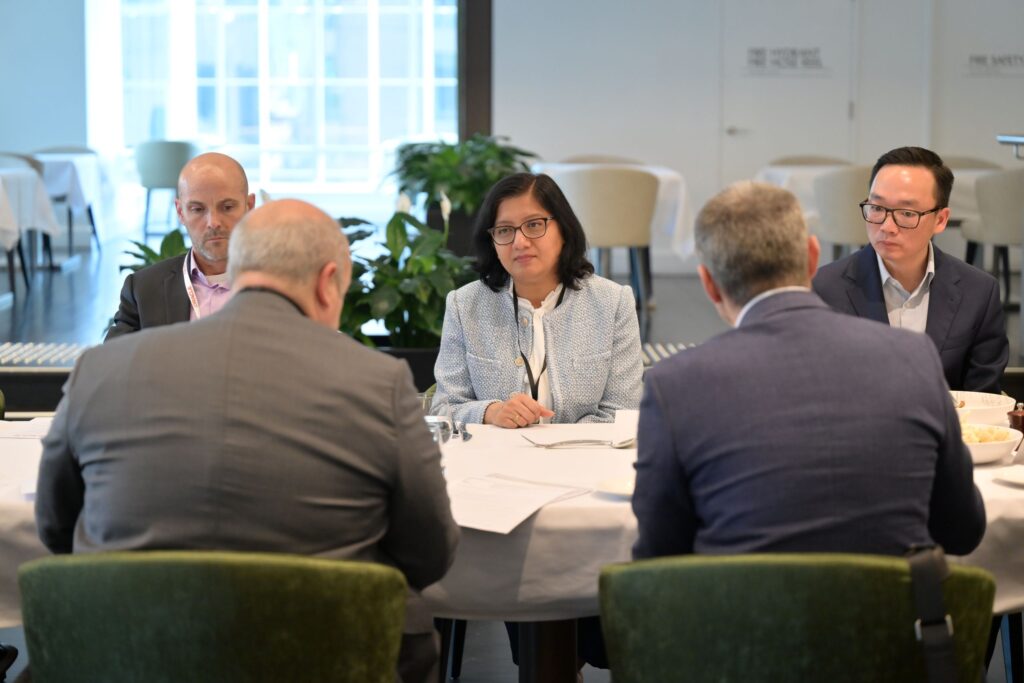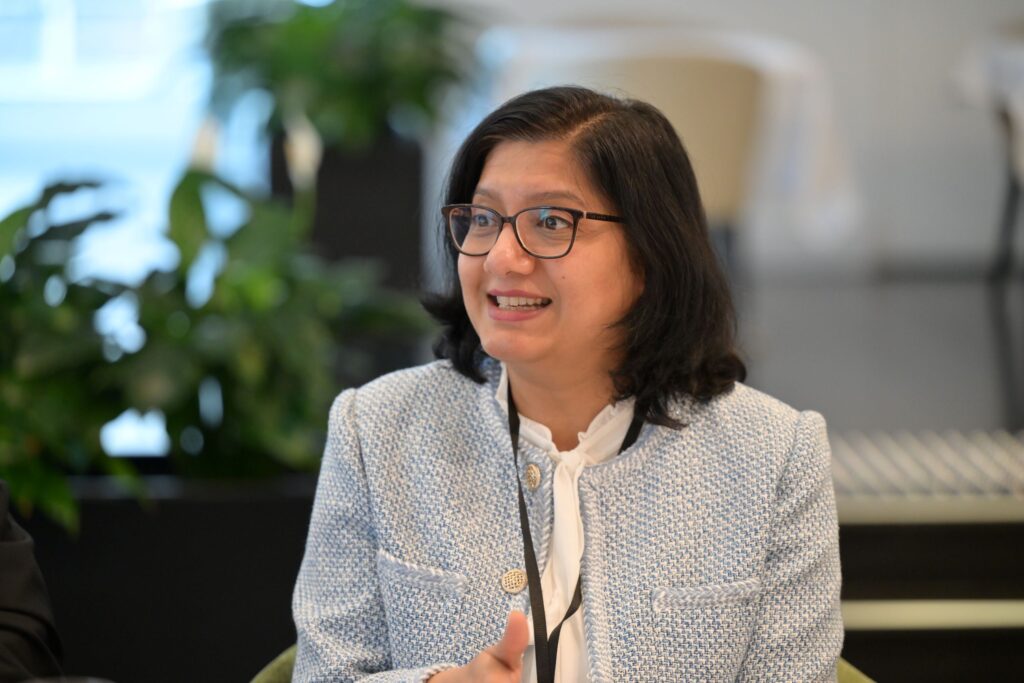Reimagining Finance Leadership: A Practical Roadmap to Sustainable AI Adoption
Introduction
The consensus is clear: AI is no longer optional, but an essential component for organisational productivity and growth. Successful finance leaders are those not just adopting AI tools, but who are fundamentally re-engineering their operating models and team capabilities for an AI-centric future.
This was the strategic context that drove discussions during the recent executive roundtable hosted by Oracle, supported by Connect Media. Following the theme of accelerating productivity and growth through AI powered innovation the roundtable convened chief finance leaders to examine the critical drivers and implementation strategies for sustainable AI adoption in finance.
Conversations were led by Dr Keith Kendall, Chair, Australian Accounting Standards Board with exclusive insights from Shilpa Bhale, Director, Product Management, Oracle and Marty Engel, Partner, Consulting, Deloitte

Cultural Transformation: The Bedrock of AI Adoption
Building an AI-first culture is the foundational first step that separates failed technology integration from long-term value creation. This requires a fundamentally reframing organisational mindset by replacing risk-aversion and siloed experimentation with collaborative, strategic approaches.
Forward-thinking finance leaders are capturing this competitive advantage by fostering curiosity and structured experimentation across their teams. When leaders enable employees to identify and solve discrete problems, they ignite a bottom-up wave of innovation that accelerates momentum, builds organisational trust in AI, and generates demonstrable wins that strengthen executive buy-in through clear ROI narratives.
This cultural shift also demands transparent change management. As AI automates repetitive tasks, finance leaders must proactively redefine team value, evolving employee roles to become strategic advisors and data interpreters. This approach ensures staff become partners in digital transformation efforts, with their deep institutional knowledge channeled into higher-value oversight and analytical functions.
Making AI Practical: Prioritising Impactful Use-Cases
For finance leaders navigating the AI landscape, success demands disciplined focus on practical, high-impact applications. Roundtable participants emphasised the importance of establishing a maturity model that begins with foundational productivity tools and evolves toward embedding agentic AI into core financial systems.
The first phase of integration leverages tools like Copilot and Gemini to automate individual tasks, from structuring emails and report summarisation to presentation design. While these generate immediate efficiency gains, they represent merely the entry point of what is possible.
Real transformation occurs when AI addresses core finance processing challenges. High-value use-cases include automated expense reporting with intelligent receipt matching, AI-assisted journal entry creation and explainable variance analysis. Unlike basic narrative reporting, this approach enables AI to identify root causes directly from transactional data – revealing for example, the specific supplier contract change driving a variance.
Yet the most significant operational gains emerge not from automating individual tasks, but from fundamentally reimagining work flows across the organisation. This is where process intelligence becomes transformative, a methodology that combines process mapping with data mining across multiple systems. This reveals hidden inefficiencies like warehouse pick-and-pack delays and communication gaps in patient flow, to approval bottlenecks that slow financial close cycles. By using process intelligence to diagnose problems first, organisations are able to apply AI with surgical precision, automating solutions that genuinely address key pain points across the business.
These scaled examples of success generate rapid ROI and build the compelling case needed for wider AI adoption. Each win demonstrates tangible business value, converting skeptics and securing executive sponsorship for subsequent investments.


The Next-Generation Finance Leader: Evolving Skills and Mindsets
AI integration within finance demands a fundamental shift in the capabilities and qualities required for business success. The next generation of finance professionals will be defined by three interdependent capabilities:
Technology Fluency
Finance leaders must develop a technology-aware mindset, understanding both the capabilities and limitations of AI tools to leverage them effectively and interrogate their outputs. The historic gap between finance and technology is closing. Business teams must now speak the language of digital transformation, not as specialists, but as informed operators capable of translating between human intent and machine capability.
Transformational Leadership
The future finance leader is a catalyst for organisational change. This requires exceptional communication and influence skills to guide teams through continuous adaptation and times of uncertainty. Finance leaders must position themselves as stewards of AI transformation, asking the critical questions that balance innovation with control, challenging both premature adoption and unnecessary caution.
The Finance Function: A Strategic Business Partnership
Most critically, AI adoption demands deeper business and strategic insight. Freed from manual number-processing, finance professionals must redirect their capacity toward understanding operational drivers, building robust internal relationships, and translating data into actionable business guidance. The value of the finance function will increasingly be measured not by analytical rigor alone, but by its ability to articulate compelling narratives about business performance and shape strategic direction.
Each of these capabilities is deeply intertwined and when embodied defines finance leaders who will thrive in the AI-driven era.
Conclusion
Unlocking Unprecedented Productivity with AI
Finance leaders who delay AI adoption face compounding disadvantages in the future. Those who act today with disciplined groundwork- stablishing strong data foundations, running focused digital pilots, and equipping teams with the right capabilities, will emerge as strategic leaders of their organisations. The question is no longer whether to embrace AI, but how to effectively drive transformation for unlocking business value and growth for the future.










